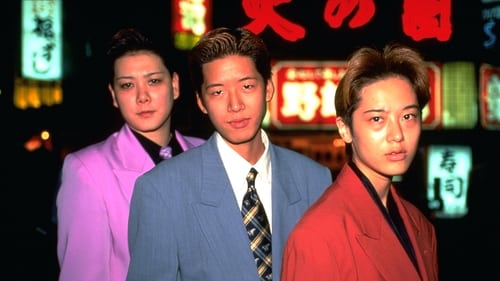
Director
This fascinating documentary is based around the Japanese wrestling organisation Gaea's rural training camp, and traces, in the main, the careers of four hopefuls. In charge are two magnificent specimens, the butch champion Chigusa Nagaya, still venting her hurt at the hands of her army father as she tries to whip her surrogate daughters through the pain and commitment barriers; and her sophisticated and slightly menacing Chairman. It's a gruelling, physical film, as you would expect, but the makers don't make heavy weather of it. And it certainly disposes of any idea that the game is faked.

Director
A film about love and gender. This documentary is set in the New Marilyn night club in Tokyo, Japan - where the hosts are transgender men. They can only make their living as hosts in a nightclub with other wannabes like them. The young women who come there often have relationships with them but the underlying fear is whether such a relationship can withstand the pressures on a girl to get married and have children. All three boys deal with this in different ways. These three hosts, the Shinjuku Boys, take us into their lives.

Director
This film is about Japanese women, escape, glamour and dreams. The Takarazuka Revue is an enormously successful spectacular where the all-women cast create fantasies of erotic love and sensitive men. It is also a world for young girls desperate to do something different with their lives. In return for living a highly disciplined and reclusive existence, they will be adored and envied by many thousands of Japanese women. They will look, act and behave like young men while having no real men in their lives. Dream Girls explores the nature of sexual identity and the contradictory tensions that face young women in Japan today.

Director
EAT THE KIMONO is a brilliant documentary about Hanayagi Genshu, a Japanese feminist and avant-garde dancer and performer, who has spent her life defying her conservative culture's contempt for independence and unconventionality. She denounced Emperor Hirohito as a war criminal, and dismissed death threats made against her by right-wing groups.



